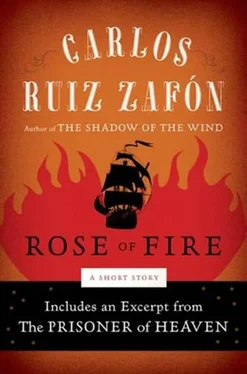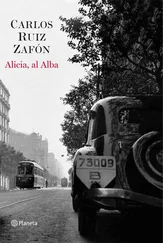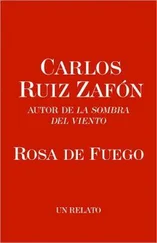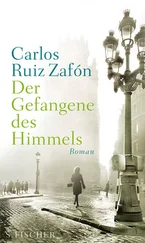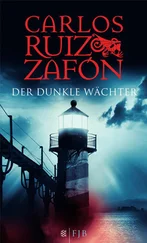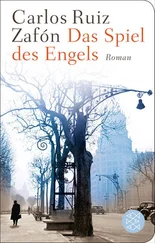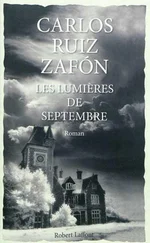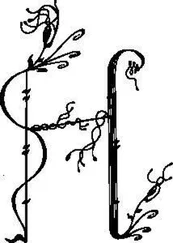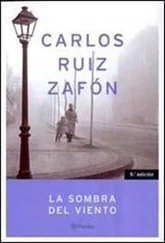Carlos Zafón - Rose of Fire
Здесь есть возможность читать онлайн «Carlos Zafón - Rose of Fire» весь текст электронной книги совершенно бесплатно (целиком полную версию без сокращений). В некоторых случаях можно слушать аудио, скачать через торрент в формате fb2 и присутствует краткое содержание. Жанр: Современная проза, на английском языке. Описание произведения, (предисловие) а так же отзывы посетителей доступны на портале библиотеки ЛибКат.
- Название:Rose of Fire
- Автор:
- Жанр:
- Год:неизвестен
- ISBN:нет данных
- Рейтинг книги:4 / 5. Голосов: 1
-
Избранное:Добавить в избранное
- Отзывы:
-
Ваша оценка:
- 80
- 1
- 2
- 3
- 4
- 5
Rose of Fire: краткое содержание, описание и аннотация
Предлагаем к чтению аннотацию, описание, краткое содержание или предисловие (зависит от того, что написал сам автор книги «Rose of Fire»). Если вы не нашли необходимую информацию о книге — напишите в комментариях, мы постараемся отыскать её.
Rose of Fire — читать онлайн бесплатно полную книгу (весь текст) целиком
Ниже представлен текст книги, разбитый по страницам. Система сохранения места последней прочитанной страницы, позволяет с удобством читать онлайн бесплатно книгу «Rose of Fire», без необходимости каждый раз заново искать на чём Вы остановились. Поставьте закладку, и сможете в любой момент перейти на страницу, на которой закончили чтение.
Интервал:
Закладка:

Carlos Ruiz Zafón
Rose of Fire
Translated from the Spanish by Lucia Graves
Set at the time of the Spanish Inquisition in the fifteenth century, “Rose of Fire” tells the story of the origins of the mysterious labyrinthine library, the Cemetery of Forgotten Books, which lies at the heart of Carlos Ruiz Zafón’s novels The Shadow of the Wind , The Angel’s Game , and now The Prisoner of Heaven .
And so, when 23 April came round, the prisoners in the block turned to David Martín, who lay in the shadows of his cell with his eyes closed, and begged him to tell them a story with which to alleviate their tedium. ‘I’ll tell you a story,’ he replied. ‘A story about books, dragons and roses, as befits the date, [1]but above all, a story about shadows and ashes, as befits the times…’
(from the lost fragments of The Prisoner of Heaven )
1
The chronicles tell us that when the maker of labyrinths reached Barcelona on board a vessel hailing from the East, he already carried with him the germ of a curse that was to stain the city’s skies with fire and blood. It was the year of Our Lord 1454. A plague had decimated the population during the winter and the city lay under a blanket of ochre-coloured smoke that rose from bonfires ablaze with hundreds of corpses and shrouds. From afar one could see the noxious pall spiralling upwards. It crept through towers and palaces and soared like an omen of death, warning travellers to continue on their way and not approach the city walls. The Holy Office had ordered the city to be sealed off and had carried out an investigation. After days of brutal interrogation it was established without a shadow of a doubt that the plague had originated in a well close to the Jewish quarter, also known as the Call de Sanaüja, where Semitic money-lenders had conjured up a demonic plot to poison its waters. The usurers’ substantial goods were seized and what was left of their bodies was cast into a pit in the marshes. Now, all that anyone could do was hope that the prayers of honest citizens might bring God’s blessing back to Barcelona. Every day fewer people died and more people believed that the worst was over. However, as fate would have it, the former turned out to be the fortunate ones and the latter would soon envy them for having already left that vale of misery. By the time a timid voice dared to suggest that a terrible punishment might fall upon them from Heaven to purge the vile act committed against the Jewish traders In Nomine Dei , it was too late. Nothing fell from Heaven except ash and dust. Evil, for once, arrived by sea.
2
The ship was sighted at dawn. Some fishermen, mending their nets by the Sea Wall, saw it emerging out of the mist, carried in by the swell. When the prow ran aground on the shore and the hull listed to port, the fishermen clambered aboard. A powerful stench rose from the bowels of the ship: the hold was flooded and a dozen sarcophagi floated among the debris. Edmond de Luna, maker of labyrinths and sole survivor of the voyage, was found tied to the helm and burnt by the sun. At first they thought he was dead, but when they took a closer look they noticed that his wrists were still bleeding where they were tied and a cold breath issued from his lips. He carried a leather-bound notebook under his belt but none of the fishermen was able lay his hands on it because by then a group of soldiers had turned up in the port and their captain, following instructions from the Bishop’s Palace – which had been alerted of the ship’s arrival – ordered the dying man to be taken to the neighbouring Hospital de Santa Marta. The captain then posted his men around the shipwreck to guard it until representatives of the Holy Office were able to inspect the vessel and make a proper Christian appraisal of the events. Edmond de Luna’s notebook was handed over to the Grand Inquisitor Jorge de León, a brilliant and ambitious defender of the Church who trusted that his efforts to cleanse the world of sin would soon earn him the titles of Blessed, Saint and Beacon of the Christian Faith. After a brief inspection, Jorge de León concluded that the notebook had been written in a language unbeknown to Christianity and he ordered his men to go and find a printer named Raimundo de Sempere. Sempere had a modest workshop next to the Gate of Santa Ana, and because he had travelled during his youth, knew more languages than it was prudent for a good Christian to know. Under threat of torture, Sempere the printer was made to swear he would keep the secret of what was revealed to him. Only then was he allowed to inspect the notebook, in a heavily guarded room above the library of archdeacon’s house, next to the cathedral. Jorge de León watched over him avidly. ‘ I think the text is written in Persian, your Holiness ,’ murmured a terrified Sempere. ‘ I’m not a saint yet ,’ clarified the Inquisitor. ‘ All in good time. Continue…’ And so it was that the printer spent the entire night reading and translating for the Grand Inquisitor the secret diary of Edmond de Luna, adventurer and bearer of a curse that was to bring the beast to Barcelona.
3
Thirty years earlier, Edmond de Luna had set sail from Barcelona, bound for the East, in search of wonders and adventures. His sea voyage had taken him to forbidden islands that did not appear on navigation charts, to lie with princesses and creatures of an unmentionable nature, to learn secrets of civilizations buried by time and to initiate himself in the science and art of building labyrinths, a talent that would make him famous and provide him with employment and fortune at the service of sultans and emperors. As the years went by, the accumulation of pleasure and wealth no longer meant anything to him. He had satisfied greed and ambition beyond the dreams of any mortal, and upon reaching maturity, aware that he was fast approaching the twilight of his life, he told himself that he would never again offer his services to anyone unless it were in exchange for the greatest of rewards: forbidden knowledge. For years he refused invitations to build the most prodigious and intricate labyrinths because nothing offered in payment seemed desirable to him. He thought there could be no treasure in the world that had not already been presented to him, when news came that the Emperor of the city of Constantinople required his services, for which he was prepared to reward him with a thousand-year-old secret to which no living soul had been privy for centuries. Bored and tempted by a last opportunity to revive the flame of his soul, Edmond de Luna visited Emperor Constantine in his palace. Constantine was utterly convinced that sooner or later the siege of the Ottoman sultans would bring his empire to an end and all the knowledge that the city of Constantinople had built up over the centuries would be banished from the face of the earth. He therefore wanted Edmond to plan the greatest labyrinth ever created, a secret library, a city of books hidden beneath the catacombs of the cathedral of Hagia Sophia, where forbidden works and the prodigies of centuries of thoughts could be preserved forever. In exchange, Emperor Constantine offered Edmond no treasure, but only a flask: a small cut-glass phial containing a scarlet liquid that shone in the dark. Constantine smiled strangely as he showed Edmond the bottle. ‘ I’ve waited many years to find a man worthy of this gift ,’ the emperor explained. ‘ In the wrong hands, this could be an instrument for evil. ’ Fascinated and intrigued, Edmond examined the bottle. ‘ It’s a drop of blood from the last dragon ,’ murmured the emperor. ‘ The secret of immortality .’
Читать дальшеИнтервал:
Закладка:
Похожие книги на «Rose of Fire»
Представляем Вашему вниманию похожие книги на «Rose of Fire» списком для выбора. Мы отобрали схожую по названию и смыслу литературу в надежде предоставить читателям больше вариантов отыскать новые, интересные, ещё непрочитанные произведения.
Обсуждение, отзывы о книге «Rose of Fire» и просто собственные мнения читателей. Оставьте ваши комментарии, напишите, что Вы думаете о произведении, его смысле или главных героях. Укажите что конкретно понравилось, а что нет, и почему Вы так считаете.
